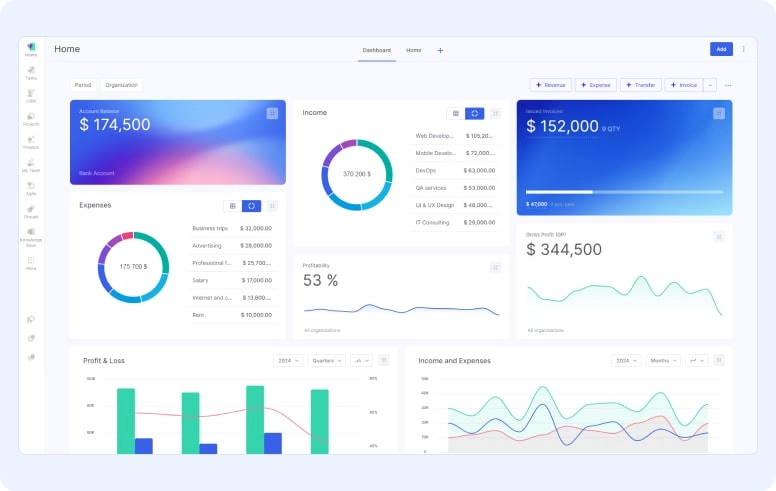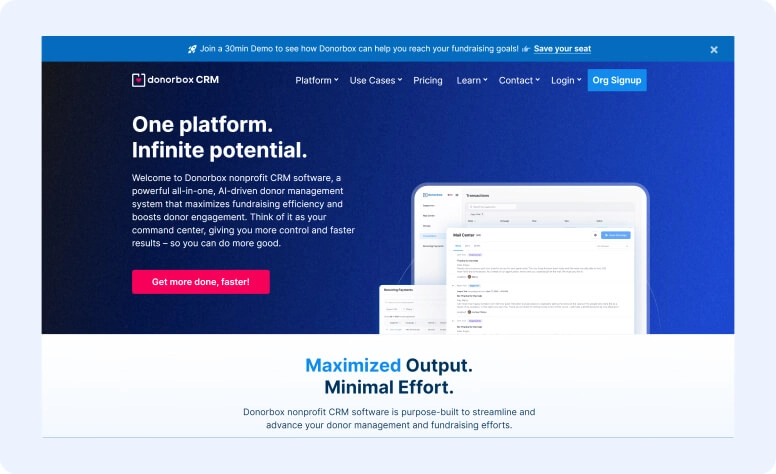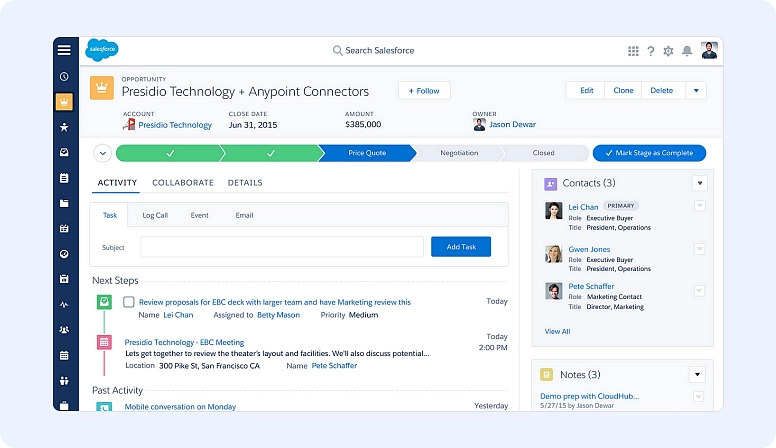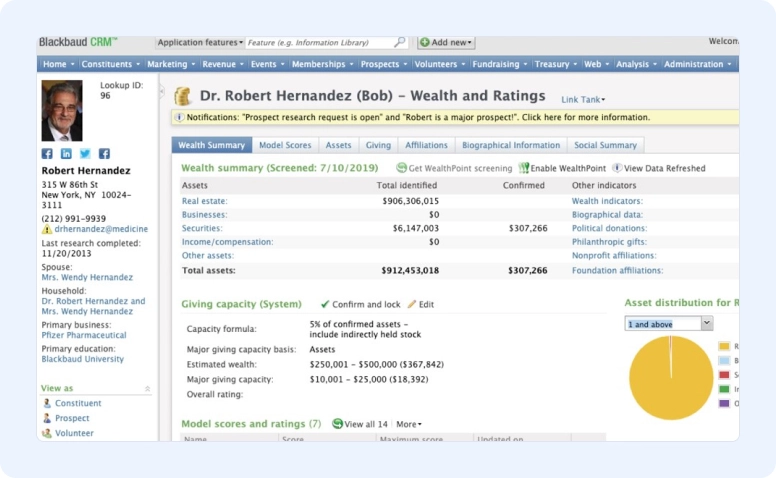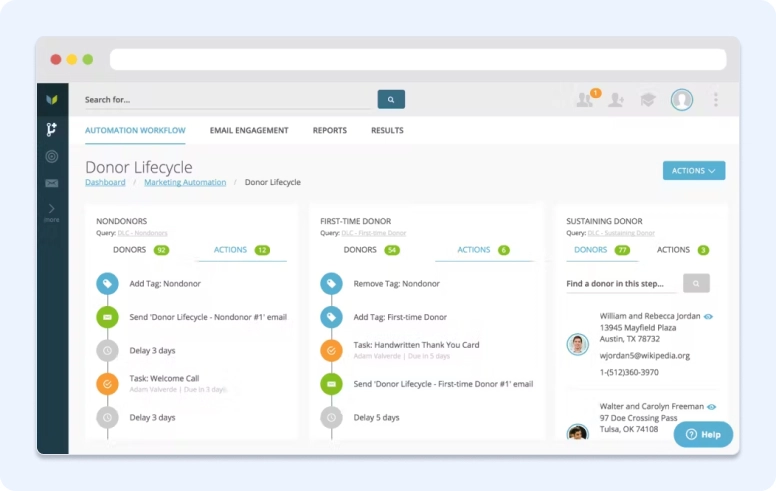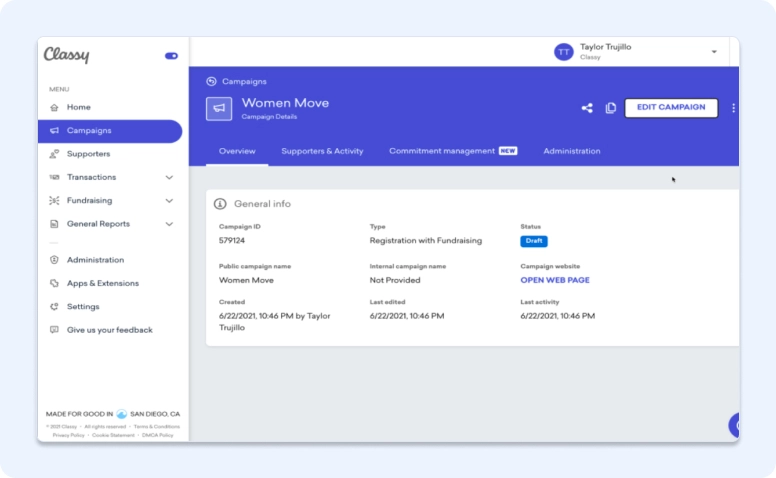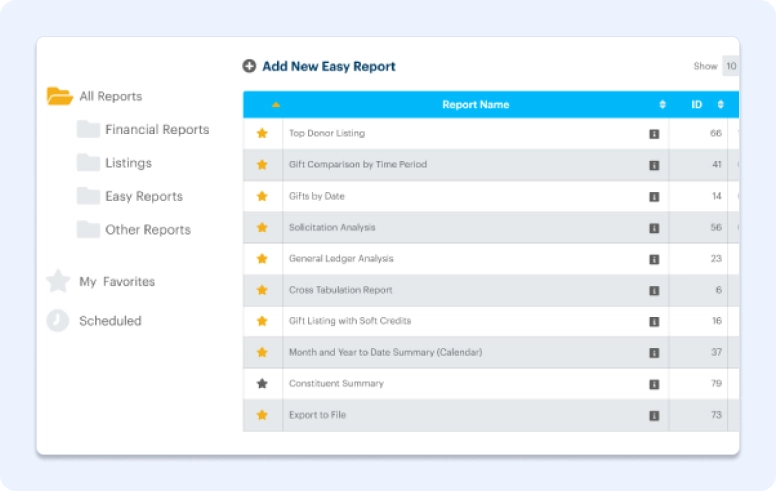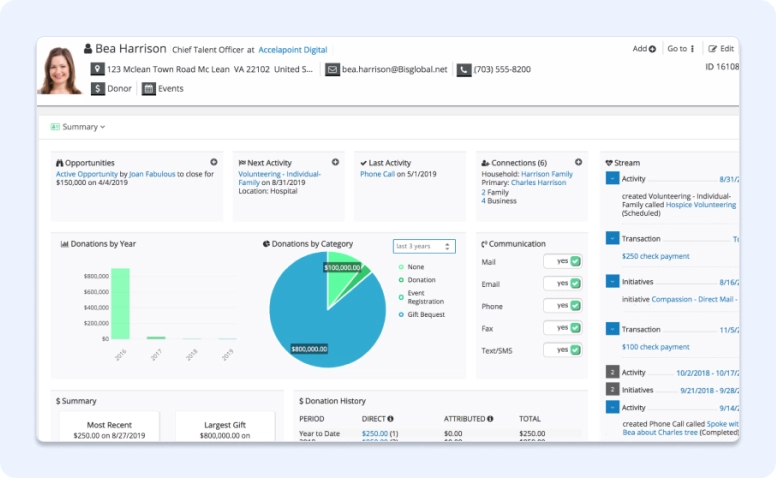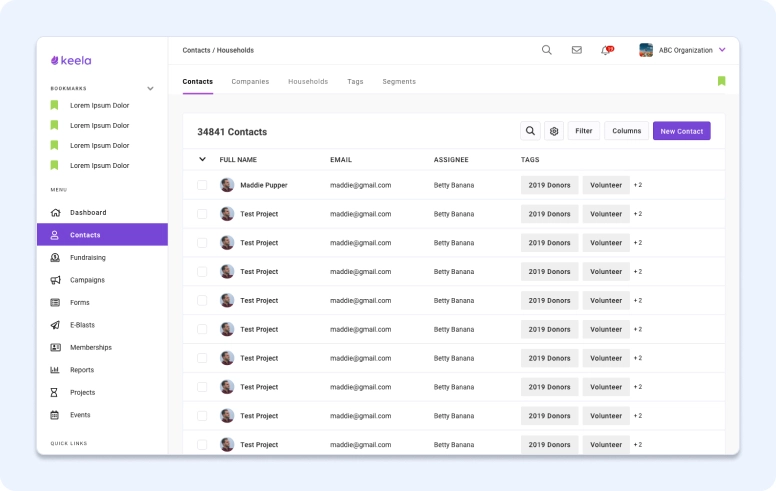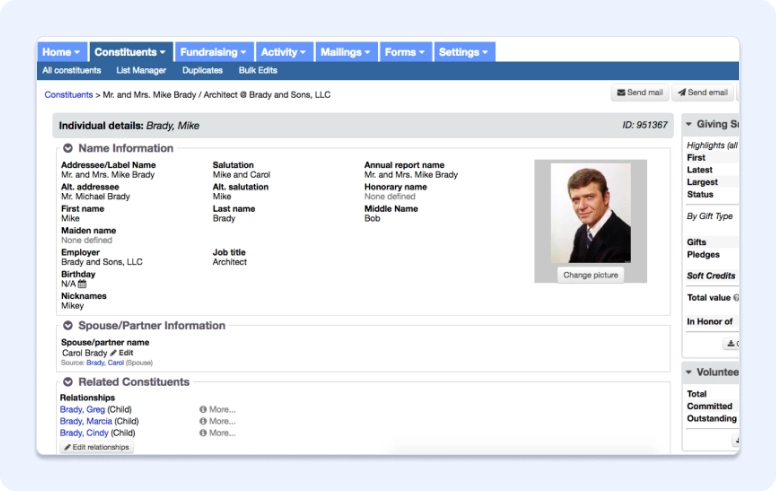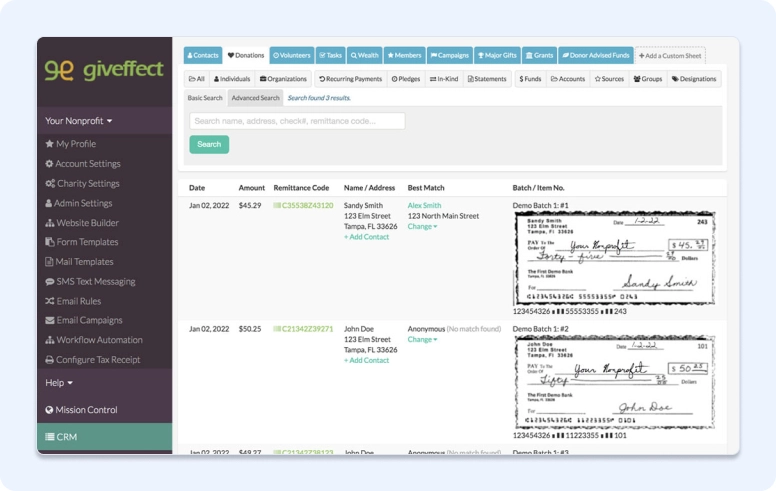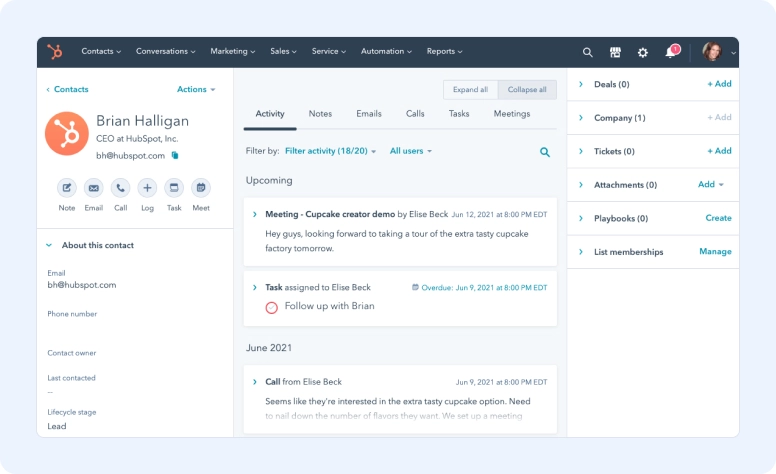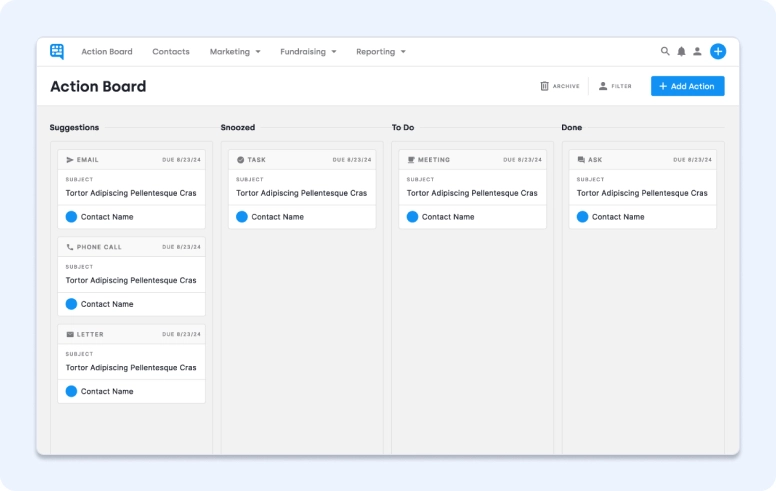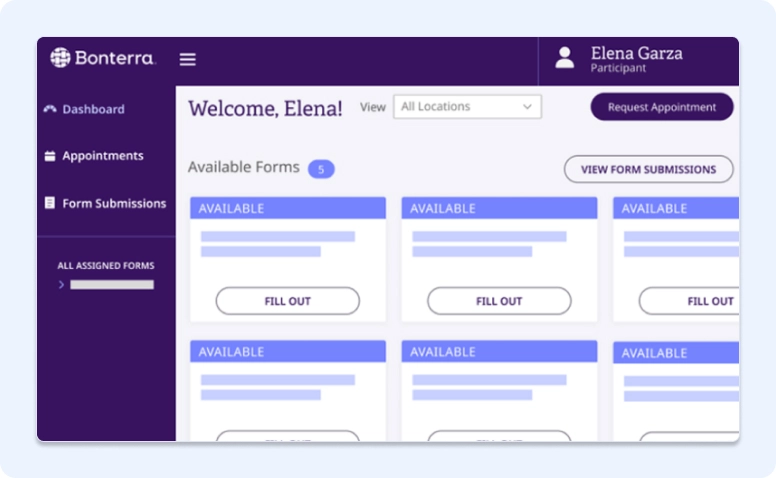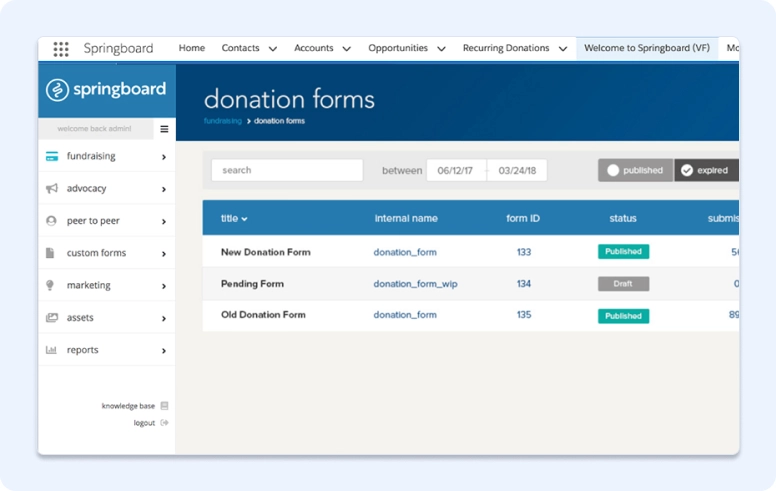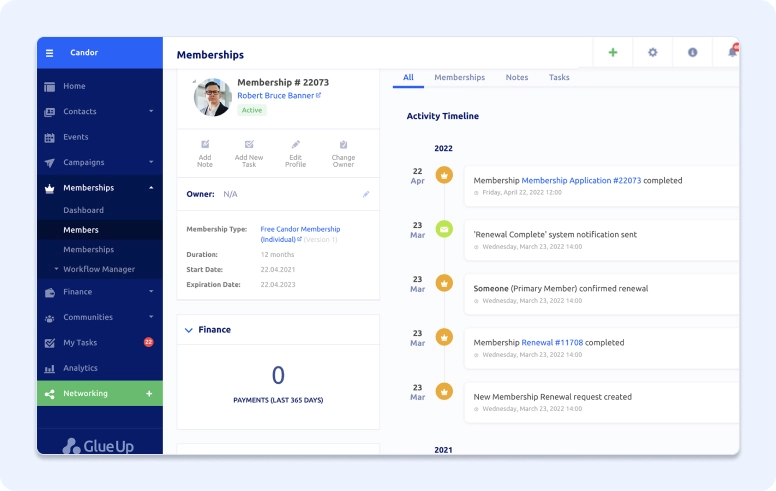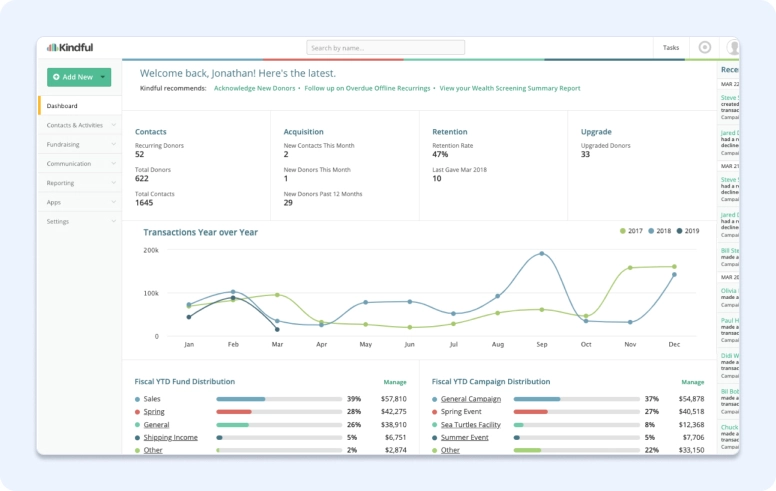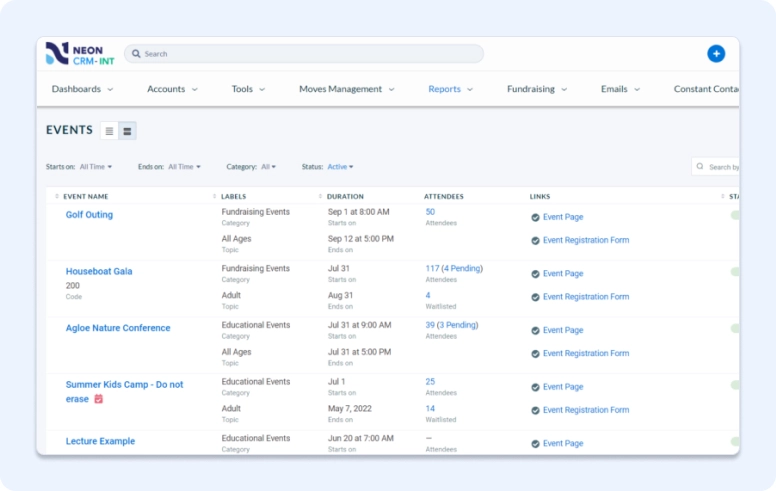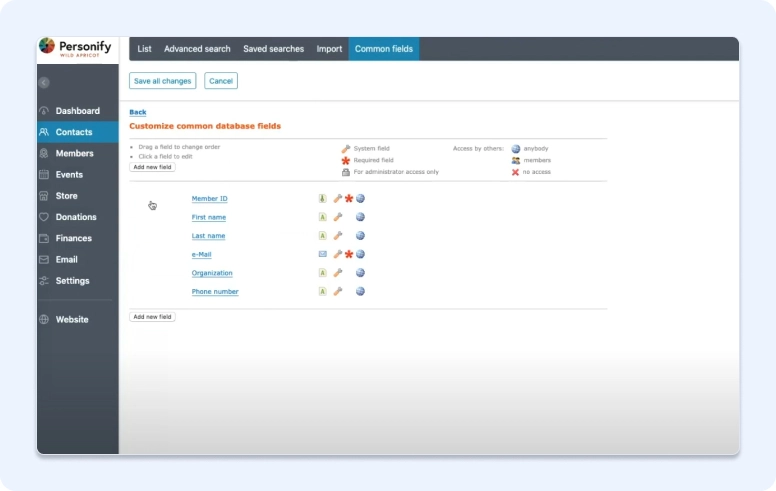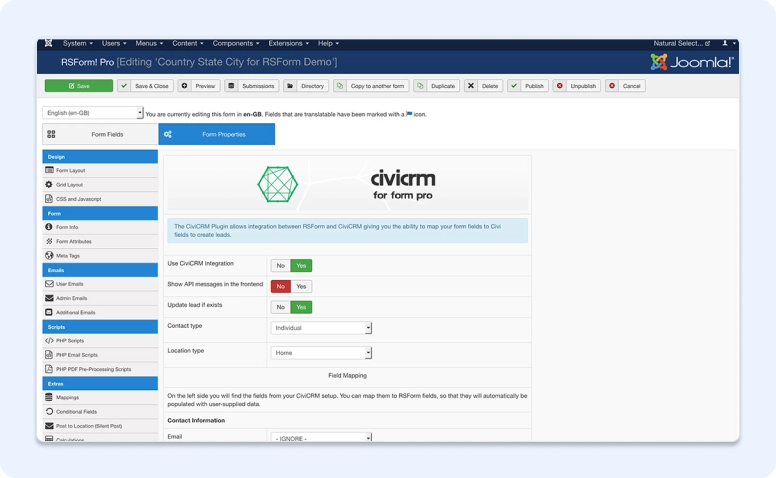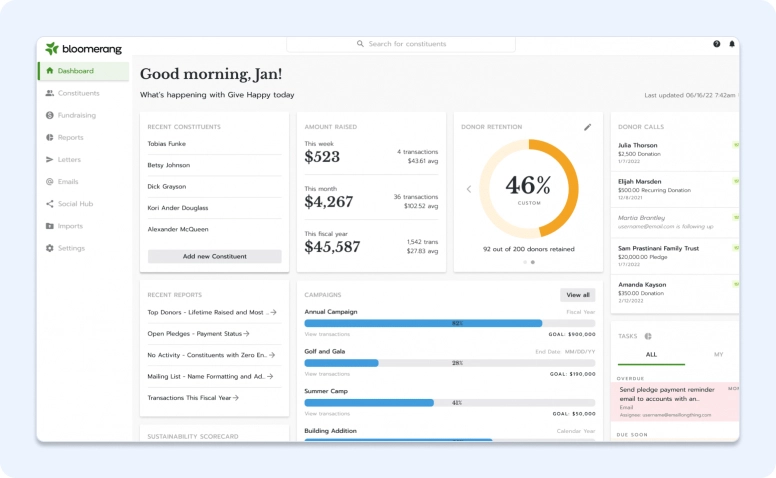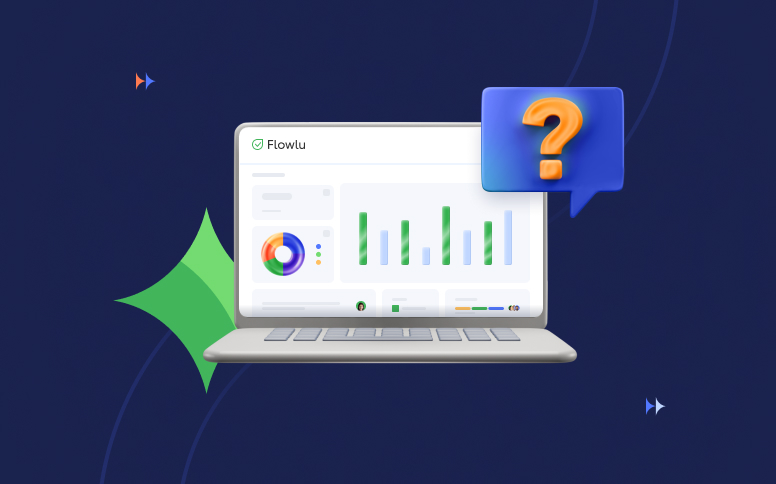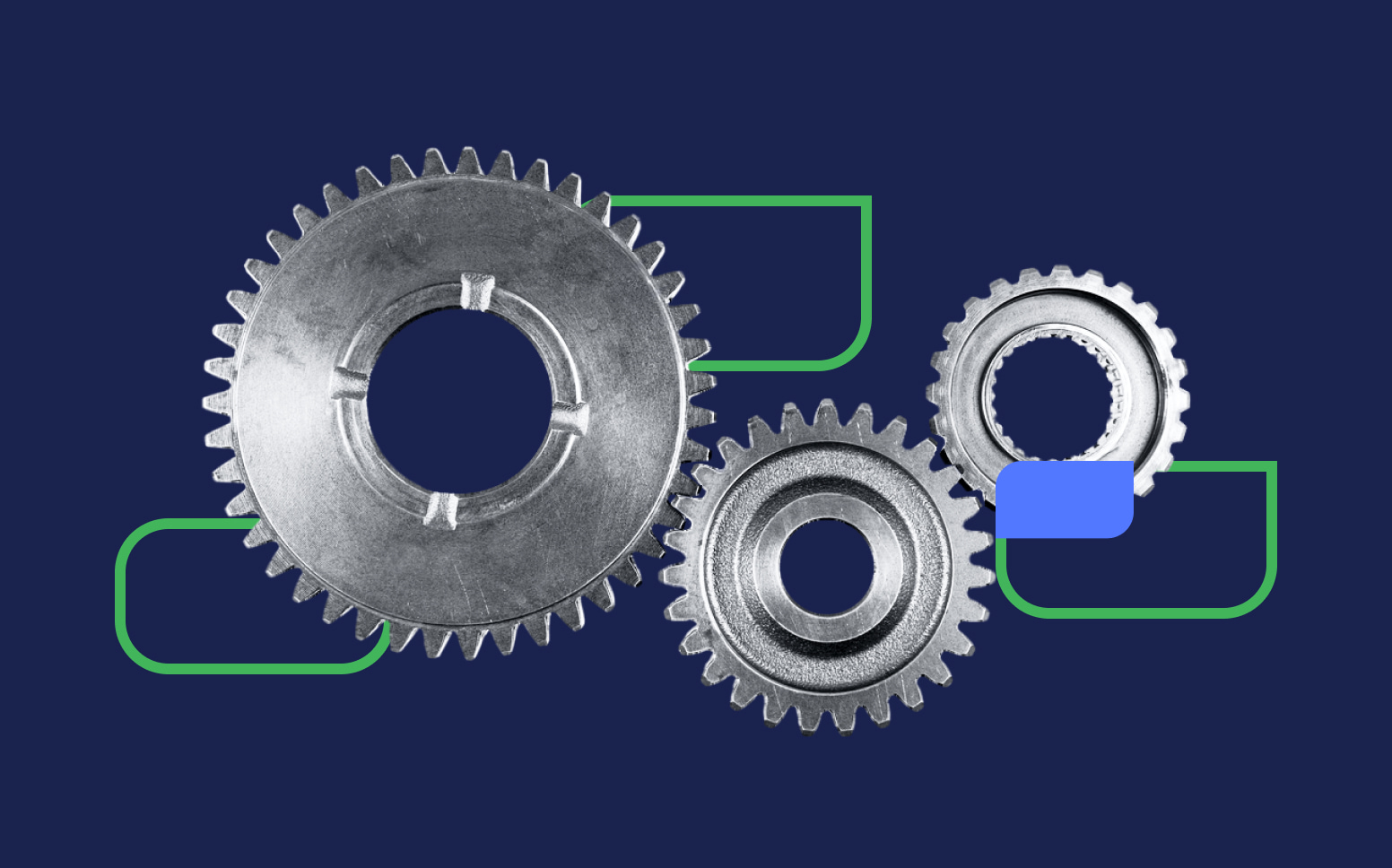The 21 Best CRMs for Nonprofit Organizations in 2025
A nonprofit CRM has an impact on tracking supporter data, from donations to event registrations. By recording all interactions with supporters, voluntary organizations can understand what matters to donors. This lets them send messages that really speak to donors. It helps keep donors coming back.
When selecting the right CRM for not for profits, understanding which features are essential is crucial. Features like advanced reporting and tools for finding donors who can give big gifts are crucial. The right CRM can greatly improve your fundraising efforts. CRMs also offer peer-to-peer fundraising and tools for managing members. These features make it easier for donors to help out and reduce the workload for staff. Plus, they have grant management tools that make applying for and tracking grants easier.
This guide will help charitable organizations’ leaders find the best CRM solutions. It talks about the main perks and best options available. It's a useful CRM for nonprofit resources looking to get better, create stronger bonds with donors, and grow in a lasting way. When you finish reading this guide, you'll understand how to pick the perfect CRM software for nonprofits. It'll help you to get better outcomes, boost your connections with donors, and reach your goals.
Key Takeaways
-
Nonprofit CRMs help manage supporter data, like donations and events.
-
Using CRMs well can make donor relationships stronger and keep donors around longer.
-
There are numerous CRM options available, offering a variety of features and pricing options to suit organizations of all sizes.
-
CRM technology is becoming more important for voluntary organizations as they use data to make decisions.
-
A good CRM can make philanthropic institutions run better and be more resilient when facing challenges.
What is a CRM for Nonprofits?
A nonprofit CRM is a special kind of software. It helps charitable organizations keep track of their supporters. It's made for the unique needs of voluntary organizations, not just like regular customer management tools. These CRMs are the heart of nonprofits. They help keep track of who gives money and how often. They also help make smart choices to get more donations in the future.
CRM has special features like tracking donor actions, making it easy to give online, and tools for fundraising. This makes managing donors easier and helps nonprofits do better at raising money. Using a nonprofit CRM helps philanthropic institutions manage their donors better. They can understand what their supporters like and do. This helps them build stronger relationships and achieve their goals.
In summary, a nonprofit CRM is an essential tool for charities. It helps them manage donors, make smart choices, and boost their impact. These CRMs are vital for nonprofits today.
Nonprofit CRM Trends
CRM is growing fast, becoming a top software category. More voluntary organizations are going digital and using one system for everything. Being digital helps organizations grow over time. Online CRMs like Flowlu are popular because they're simple to use. Switching to digital helps people make smarter choices. When choosing a CRM, consider factors such as scalability and support.
Around half of voluntary organizations use a CRM that's different from their fundraising tools, while the other half use one system for both. CRMs with marketing stuff help reach more people. It's crucial to keep donor info safe and follow the rules to protect it. CRMs help to understand how donors act and make things run smoother. They play nice with other tools like accounting programs and online payment methods.
How Does a Nonprofit CRM Help with Fundraising?
A nonprofit CRM (Customer Relationship Management) system is a big help for your fundraising. It gives deep insights into what donors do and like. This enables nonprofits to better understand and connect with their supporters. This leads to more donations and a stronger group of donors.
A nonprofit CRM is great for tracking and guessing what donors will do next. It looks at how often donors give and what they might give in the future. This lets nonprofits focus on their most loyal and big donors.
CRM systems for nonprofits also help sort donors into groups. This lets voluntary organizations send messages that really speak to each donor. They can make their messages more personal and effective.
By knowing what donors do, nonprofits can make their fundraising better. They can make their campaigns more likely to get big donations and keep donors coming back.
CRM platforms also have cool tools like power dialers and reporting. These tools help nonprofits manage and grow their donor relationships. This leads to better fundraising results.
| Feature | Description |
| Contact Management | Centralized database for managing donor and constituent information |
| Email Campaigns/Marketing | Tools for creating, sending, and tracking email communications |
| Segmentation | Ability to categorize donors based on various criteria |
| Power Dialer | Automated calling functionality for donor outreach |
| Automation | Streamlined workflows and triggers for various tasks |
| Task Management | A centralized platform for assigning and tracking tasks |
| Calendar/Reminder System | Integrated scheduling and notification features |
| Integrations | Seamless connectivity with other software and platforms |
| Mobile Access | Being able to check and handle info on the go |
| Reporting & Analytics | Comprehensive data analysis and visualization capabilities |
When voluntary organizations use the cool stuff in their CRM, they can raise more money, make better use of what they have, and get closer to the people who give them cash.
What to Look for in a Nonprofit CRM Software
Before you go and buy a CRM system, you think about some important things. This helps make sure it fits what your group wants to do and needs:
-
Match with Goals: Make sure the CRM helps your company reach its big goals, like selling more stuff, making customers happier, or doing better marketing.
-
Scalability: Think about whether the CRM can keep up when your company gets bigger, without slowing down or becoming hard to use.
-
Integration Capability: Check if the CRM works with the other programs and tools you already use (like email marketing stuff or ERP systems) to make work easier and keep data organized.
-
Customization Options: Look at how easy it is to change the CRM to fit your company's special way of doing things and what you need it to do.
-
User Adoption: Check how easy the CRM is to use and if it gives enough training and help for your team to make sure they start using it without problems.
Questions to Consider Before Selecting a CRM:
-
What do we want to achieve in our business, and how can a CRM help us get there?
-
Which features do we need for our team to work well every day?
-
How will CRM improve our relationships with customers?
-
How much help and training does the CRM company offer?
-
Is the CRM's price okay for us, including setup costs keeping it running, and making it bigger if we need to?
If you think about these things, you can choose a CRM that fits your company and helps it grow and work better.
Benefits of Nonprofit CRM Solutions
Voluntary organizations gain a lot by using a customer relationship management (CRM) system. It makes their work better, helps with donor care, and boosts their effect. A good CRM lets people find donor info fast, saving time and resources. This means they can focus more on their mission. Here are some key benefits of using customer relationship management for nonprofits:
-
Task Automation: CRM systems automate tasks like sending thank-you emails. This saves staff time for more important work.
-
Easy-to-Access Donor Information: A CRM keeps all donor data in one place. This makes it easy to find and understand important info.
-
Contact Records and Task Reminders: CRMs keep track of all interactions with donors and volunteers. They also remind staff about important tasks.
-
Real-Time Reports and Data Analysis: CRMs give nonprofits detailed info. This helps them to make smart choices based on facts.
-
Streamlined Donor Communications: CRMs make it simple to send notes to donors. This helps to build stronger bonds with them.
-
Improved Donor Cultivation and Stewardship: CRMs help nonprofits to know and back their most loyal supporters.
-
Increased Donor Retention: Using CRM plans can make donors give more over time. This leads to more stable funding for a nonprofit.
Using a nonprofit CRM can make things run smoother, boost ties with donors, and have a bigger effect. By picking the right CRM, voluntary organizations can use what they have better and reach their big goals.
Top 21 CRMs for Nonprofits
Picking the right CRM system for nonprofits is crucial. We've compiled a list of 20 great options. These CRMs offer cool features, such as ways to track donors, tools to interact with people, reports, and data analysis.
When choosing CRM software for nonprofits, consider how it handles donors and volunteers, helps plan events, and makes reports. Many CRMs also have phone apps that can be used anywhere.
Are you trying to find a top-notch CRM for nonprofits that can do advanced tracking or just a basic one? This list of 20 choices can help you determine which works best for your voluntary organization.
#1: Flowlu
Flowlu is a strong CRM and project management tool made for nonprofits. It has many features to help with donor management, fundraising, and making things run smoother.
Flowlu's main feature is its donor database management. It lets voluntary organizations keep track of donors, volunteers, and important people. It also has tools for reports and analytics. These help charitable organizations understand donors better and plan for the future.
Flowlu has great fundraising tools, too. Nonprofits can start online fundraisers, sign people up for events, and ask friends to raise money for them on the Internet. The service also sends thank-you notes and checks in, which gives teams more time to do other things.
Flowlu also helps manage projects. Voluntary organizations can handle tasks, make work happen on their own, keep files safe, and work together as a group. This makes Flowlu the best donor CRM for any size nonprofit.
Flowlu might not have all the fundraising tools some CRMs do. It's simple to work with, has powerful automated features, and comes at a fair price. For charitable organizations wanting one system to handle donors, raise money, and run things, it's a solid choice.
Pros
-
All-in-one software which integrates everything from contact management to invoicing
-
User-friendly interface
-
Automated workflows
-
Affordable nonprofit CRM
Cons
-
Limited customization options
-
Potential learning curve for some users
Pricing
-
Free Plan: $0 (one of the best free CRM for nonprofits)
-
Team Plan: $39/month
-
Business Plan: $74/month
-
Professional Plan: $149/month
-
Enterprise Plan: $249/month
#2: Donorbox CRM
Donorbox CRM is an all-in-one, AI-powered fundraising CRM solution. Designed for nonprofits both large and small, it offers tools to streamline your workflow and put donor relationships first.
Create supporter profiles with a detailed timeline of interactions and transactions, segment on the fly with dynamic lists and Groups, and send communications directly from your CRM with a built-in Mail Center. Plus, pull reports in just a few clicks with popular reporting templates or ask your AI assistant to pull data and visualize it in a chart for you.
Donorbox’s donation forms link seamlessly with Donorbox CRM, allowing you to see a complete picture of all transactions with the ability to add in offline transactions, soft credits, pledges, and in-kind donations.
People like how intuitive Donorbox’s interface is both for users and donors. The customization options make Donorbox a good choice for nonprofits looking for a reliable fundraising partner to build up their brand.
Pros
-
An all-in-one, optimized tool for donor outreach.
-
An AI assistant that analyzes data and writes fundraising materials.
-
In-depth donor profiles for better relationship building.
- Dynamic segmentation with lists and groups.
Cons
-
Some limits to customization options.
-
Some limits to the number of recipients on emails using Google or Outlook accounts.
Pricing
-
Customized plans based on the number of contacts.
-
Starts at $75 per month.
#3: Salesforce
Salesforce is the best free CRM for charities. It offers the Nonprofit Success Pack (NPSP) for nonprofits. This special CRM helps nonprofits manage donors, track programs, and raise funds better.
The Salesforce nonprofit success pack lets nonprofits create custom donor profiles. It helps manage donations and track program results. Voluntary organizations can also use third-party apps to make the platform work better for them.
The salesforce CRM solutions for charities have great reporting and analytics. This helps voluntary organizations make smart decisions and run better.
Setting up Salesforce might need help from a tech expert. This can cost more money. But, the benefits are big. A good Salesforce setup can improve how charitable organizations connect with donors, raise money, and manage programs.
The salesforce customer relationship management software for nonprofits with the Salesforce nonprofit success pack is a great choice. It helps voluntary organizations manage donors, fundraise, and run programs better. Getting started might need extra help, but the long-term gains are huge for charities and social groups.
Pros
-
Customizable donor profiles strengthen supporter relationships.
-
Salesforce NPSP has strong program management tools to track the success of projects.
-
It offers powerful reporting and analytics for better decision-making.
-
It works well with many nonprofit apps and tools through the Salesforce AppExchange.
Cons
-
The platform can be complex, so tech experts need help with setup and customization.
-
It might cost more to implement and customize compared to some other CRMs for nonprofits.
Pricing
-
Starter Suite: $25 user/month
-
Pro Suite: $100 user/month
-
Enterprise: $165 user/month
-
Unlimited: $330 user/month
#4: Blackbaud
Blackbaud is a top name in fundraising software for nonprofits. They offer two CRM solutions for nonprofits for different sizes of organizations. For big operations, they have the Blackbaud CRM. For mid-sized and growing groups, Raiser's Edge NXT is perfect with its many features.
Raiser's Edge NXT simplifies fundraising and donor management. It has tools to find new donors, built-in analytics for smart decisions, and services to make donor profiles better. It also has tools for sending out emails to supporters.
This CRM is great for big voluntary organizations but might need expert help to set up. This can cost more at first. But, it pays off with better donor management, more money raised, and happier supporters.
Organizations that use Raiser's Edge NXT experience a significant boost. They raise about 44% more money thanks to better donation forms and managing big donors well. It also helps with ongoing donations and growing a strong donor base.
Raiser's Edge NXT also works well with other apps like Gmail® and Microsoft® 365. Plus, it has an online community and support team from Blackbaud. This helps voluntary organizations use the platform fully.
Pros
-
Comprehensive fundraising features.
-
Tools to discover hidden donor potential.
-
Advanced analytics for identifying new opportunities.
-
The analytics give insights to find new chances.
-
Enhances nonprofit understanding of donor behavior.
Cons
-
Complexity requires expert setup and configuration.
-
Dependence on Blackbaud's nonprofit software expertise for effective use.
Pricing
Tailored to meet the needs of larger institutions with complex requirements.
#5: Virtuous
Virtuous is the best CRM for nonprofits that personalizes the giving experience for every donor.It has many features like automated donor care, sending messages through many channels, and seeing donors fully. This virtuous nonprofit crm helps make giving easy and fun.
People like how easy Virtuous is to use and how automated it is. But some say it could be more customizable. It costs $300 a month, making it a good choice for mid-sized groups.
Rooted Software has helped over 100 voluntary organizations move to Virtuous CRM. They offer training, advice, and support after you start. This makes sure you get the best from Virtuous CRM.
Virtuous CRM makes managing donors, marketing, planning events, and volunteers easier. It works well with many other apps and tools. This makes it a great choice for all kinds of voluntary organizations.
If your nonprofit needs strong, virtuous donor management software or a full, virtuous fundraising platform, check out Virtuous CRM. It has great features, is easy to use, and comes with support from Rooted Software. Virtuous can help mid-sized nonprofits work better and give donors a special experience.
Pros
-
Streamlined fundraising efforts
-
Personalized donor experiences
-
Improved donor engagement and retention
-
Enhanced marketing and event planning
-
Seamless integration with other essential tools
Cons
-
Limited customization options might require additional time and resources for setup.
Pricing
-
Standard: $300.00 per month
-
Professional: $600.00 per month
#6: Classy
Classy is a top Classy CRM for nonprofits. It helps groups raise more money with a strong classy fundraising platform. This online fundraising CRM for nonprofits has many features. They make it easy to reach out to donors, keep them engaged, and run successful fundraising campaigns.
Classy makes managing donors easy with tools for searching and grouping them. It has automated emails to help keep donors close. Plus, it's safe for online donations.
People like how easy Classy is to use when starting fundraising campaigns. But, some say it's not great for making very unique fundraising pages.
Classy offers different prices for each voluntary organization, and it works for groups of all sizes and budgets. With its powerful CRM and straightforward fundraising platform, Classy helps philanthropic institutions get more out of their donors and expand.
The company combines a robust donor management system and a user-friendly fundraising tool. This combo allows nonprofits to work more, build better connections with donors, and grow through effective online fundraising CRM.
Pros
-
Combines data from various sources for better insights.
-
Helps personalize communication with donors.
-
Provides insights to improve fundraising strategies.
-
Works well with popular platforms like Salesforce and Google Analytics.
-
Offers personalized interactions and secure donation management.
Cons
-
It can be tricky for new users.
-
Higher pricing might not fit smaller nonprofits' budgets.
-
Some organizations may find customization options limited.
Pricing
-
Essentials: Custom pricing available
-
Professional: Custom pricing available
-
Advanced: Custom pricing available
#7: DonorPerfect
DonorPerfect is a top pick as a CRM for nonprofit users who want an easy-to-use donor management tool. It's just right for small to mid-sized groups, and the software has many features to make donor management and fundraising less of a hassle.
DonorPerfect offers great fundraising tools like internal payment processing and customizable donation forms. It also has automation tools that save time. This lets philanthropic institutions focus more on their work and less on complicated tech.
Sarah Lalonde, a pro at DonorPerfect, has helped voluntary organizations grow for ten years. She says DonorPerfect helps find and grow mid-level donors. These are people who give between $500 and $2,500 and could become big supporters.
DonorPerfect has strong reporting tools, like the "top donor listing." This helps users find donors by their past gifts. By using filters, philanthropic institutions can easily spot and connect with donors who could give more.
DonorPerfect is easy to use and can be customized. It's one of the best CRMs for small nonprofits looking for an affordable CRM. It lets groups handle all donor tasks, from payments to events, in one place. This makes their work smoother and more effective.
Pros
-
Starts at $99 per month, making it budget-friendly for voluntary organizations.
-
Easy to learn and start using quickly.
-
Offers comprehensive tools for donor management and fundraising.
-
Known for excellent customer support and service.
Cons
-
Some users find it less customizable compared to other CRMs.
-
Reports may lack detail compared to others.
Pricing
-
Multiple pricing tiers based on database size and features
-
Pricing starts at $99/month
#8: CharityEngine
CharityEngine is a top choice as a CRM for nonprofit professionals looking for a complete software solution. It's an all-in-one nonprofit software with a strong CRM and fundraising platform. It meets the needs of big charities.
CharityEngine lets voluntary organizations make customized donation pages. These pages help create a strong online giving experience for donors. The platform also has PCI-certified payment processing. This makes donations easier and cuts down on admins' work.
The user center is another great feature. It lets supporters connect more with the organization. This helps keep donors coming back.
CharityEngine is a fully integrated platform. It offers many tools in one place. This makes it easier to start using and run for big charities. Prices are between $299 and $700 a month. This is for mid-size to big nonprofits.
CharityEngine gets good reviews for its customization and strong features. However, some voluntary organizations find it hard to move data over, and it's complex. It's important to check if CharityEngine fits your needs and how it works with your operations.
Pros
-
Customizable donation pages optimized for mobile engagement
-
Integrated, PCI-certified payment processing for secure transactions
-
User-centric portal allowing supporters to manage their involvement
-
Seamless integrations with a wide range of nonprofit tools and platforms
Cons
-
Relatively higher price point starting around $450-$700 per month
-
The steep learning curve for users unfamiliar with robust non-profit CRM systems for charities.
Pricing
-
Basic: Starting at $299/month
-
Starter: Starting at $549/month
-
Premier: Custom pricing
#9: Keela
Keela is a top nonprofit CRM platform for mid-sized groups. This CRM software for charities helps them improve donor relationships and fundraising. Keela is known for making donor connections stronger and fundraising smoother.
Keela has tools that help with donor engagement and fundraising. It uses data to predict donor actions. This lets voluntary organizations make smart choices and send messages that really speak to donors.
Keela also has tools to segment donors. This means charitable organizations can send the right message at the right time. It helps donors feel more connected and valued.
Keela's automated welcome series for new donors is a big hit. It helps voluntary organizations build strong bonds with supporters right away. This leads to more donations over time. One group made over $100,000 from their first campaign, more than usual.
People love Keela for its easy-to-use interface and great support. It's priced at $99 a month. This makes Keela a smart choice for mid-sized charitable organizations looking to make a bigger impact.
Pros
-
Keela is known for its easy-to-use interface and powerful tools.
-
Automatic duplicate detection
-
Competitive processing fees
-
Data storage in different regions
-
Significant increase in income for users
Cons
-
Pricing starts at $99 per month
Pricing
-
Tiered pricing based on features and contacts
-
Pricing starts at $99/month
#10: Little Green Light
Little Green Light works great for smaller and medium-sized nonprofits. It's a cloud-based system that voluntary organizations use to manage their contacts. This tool helps with raising money, keeping all donor info in one place, and making the whole organization run smoother.
Little Green Light focuses on managing people well. It allows you to create detailed profiles for donors, volunteers, and others, giving you a full picture of how they interact with your group. It also helps philanthropic institutions better understand and communicate with their donor database, which leads to improved fundraising tools.
Little Green Light can adapt and expand as your group grows. It offers different options for various sizes, starting at $45 for up to 2,500 people and going all the way to $135 for up to 50,000. They also give discounts, which makes it a cheap and best CRM for small nonprofit organizations.
Little Green Light also has stuff to make your job easier. You get email, mail merge, and ways to say thanks to donors. It also plays nicely with other tools like email marketing and accounting software. Plus, it has good reporting to help you make smart decisions.
In a nutshell, Little Green Light is a great CRM for nonprofit job boards. It's simple to use, doesn't break the bank, and excels at handling people and raising funds. It helps organizations work better and raise more money.
Pros
-
Starts at $40.50/month for up to 2,500 constituents.
-
Easy to use and cloud-based CRM for nonprofits.
-
Best CRM for small non-profit
-
Manages donor info, fundraising, and supporter communication effectively.
-
Charges 2.2% + $0.30 per donation with no hidden costs.
Cons
-
Some options for tailoring features may be less extensive.
-
Additional fees for larger databases beyond initial tiers.
Pricing
Monthly pricing based on constituent count: Up to 2,500 for $45, up to 5,000 for $60, up to 10,000 for $75, up to 20,000 for $90, up to 30,000 for $105, up to 40,000 for $120, and up to 50,000 for $135.
#11: Giveffect
Giveffect is a top choice as CRM for nonprofit purposes, offering a powerful 10-in-1 platform. It handles everything from volunteer management to marketing and online giving. This platform helps midsize nonprofits work better. It offers tools for managing volunteers, marketing, and online giving in one place.
Giveffect has cool features like 360-degree views of donors and automated messages. It's great for voluntary organizations wanting to use fewer tools. Even a 70-year-old CFO finds it easy to use.
Giveffect's Smart Automation cuts down on work by doing tasks automatically. This makes tracking data faster and helps in making quick decisions. It's a big help for voluntary organizations.
Giveffect also has great reporting tools. These let philanthropic institutions keep an eye on donations and campaigns. It works well with QuickBooks for better financial tracking. The platform helps manage things like meeting rooms and equipment, too.
With its comprehensive CRM for midsize nonprofits, Giveffect is a reliable partner. It brings together many systems into one. This lets nonprofits focus more on their mission and make a bigger impact.
Pros
-
Offers a 360-degree constituent view for in-depth donor analysis
-
Streamlined operations and reduced manual data entry
-
Improved donor engagement and retention
-
Enhanced efficiency in volunteer and resource management
-
Comprehensive financial management and reporting
-
Increased staff productivity and decision-making capabilities
Cons
-
Its broad range of features might take some time to master.
-
Starts at $399 per month, which may be expensive for smaller nonprofits.
Pricing
-
Starter: Starting at $399/month
-
Ultimate Lite: Contact for pricing
-
Ultimate: Contact for pricing
#12: HubSpot CRM
HubSpot CRM works well for philanthropic institutions who need a complete customer management system. While it's not just for voluntary organizations, it offers many helpful things for small to midsize ones. These include handling contacts, sending emails, creating reports, and using fundraising and payment tools.
It's pretty simple to start with HubSpot CRM. They've got a free plan that lets you have up to 1 million contacts, which is awesome if you're watching your wallet. Plus, if you're a 501(c)(3) nonprofit, you can get 40% off on the fancy professional and enterprise CRM levels.
HubSpot CRM helps voluntary organizations better handle customer info, sales pipelines, and online marketing. This makes it simpler for different teams to chat, keep an eye on donors, and understand data. CRM for nonprofit agencies can also lend a hand with setup, making it fit nonprofits' needs more.
To snag HubSpot's nonprofit deals, you must be in North America, Australia, or New Zealand. You need 501(c)(3) status, be new to HubSpot, and sign up for a year-long plan. Schools, hospitals, government groups, and political folks can't get these discounts. With HubSpot CRM, philanthropic institutions can manage donors, fundraising, and programs more. This leads to doing more with less.
Pros
-
User-friendly interface and intuitive navigation
-
Robust reporting and analytics capabilities
-
Seamless integrations with other software tools
-
Affordable pricing options for charitable organizations
Cons
-
Lack of nonprofit-specific features out-of-the-box
-
Potential need for additional training or customization
Pricing
-
Free Plan: $0 (free CRM for nonprofits)
-
Professional Customer Platform: Starts at $1,170/month
-
Enterprise Customer Platform: Starts at $4,300/month
#13: DonorDock
DonorPerfect is a top CRM for charities and nonprofits looking for an easy-to-use donor management tool. It's perfect for small to medium-sized groups. It has many features that make managing donors and fundraising easier.
DonorDock was made for busy philanthropic institution workers like Babs. It's simple and flexible to save time. This lets voluntary organizations focus on their main goals. DonorDock fits the needs of various charitable organizations, meeting their unique needs.
DonorDock values being open and listening to customers. They make sure each philanthropic institution finds the right tool for them. This has made DonorDock a FrontRunner 2025 CRM in non-profit organizations software.
DonorDock is also a low cost non profit CRM. It's priced for small nonprofits, making it fair for all. Starting at $120 a month, it's within reach for many.
DonorDock always gets better with updates and new features. Users love the great customer service. They say the team really listens and manages donors smoothly.
If you need a CRM for a small or simple non-profit, DonorDock is a great choice for customer relationship management of non profit organizations. It's easy, affordable, and cares about your needs, making it perfect for boosting your work and connecting with donors.
Pros
-
It is easy to use and has many features.
-
It helps with campaigns, contacts, CRM, managing donors, and emails.
-
It's made for small and low cost CRM software for philanthropic institutions.
-
Starts at $100.00/month, budget-friendly for voluntary organizations.
-
Users say it helps with organizing contacts and donor data.
Cons
-
Could improve event management features.
-
Some users find reporting capabilities basic.
-
Best suited for small charitable organizations but may not scale well for larger organizations.
Pricing
-
Lite: $120/month
-
Essentials: $300/month
-
Professional: $480/month
#14: Bonterra
Bonterra used to be called EveryAction. It's a tech company for charitable organizations. They offer a Bonterra CRM for nonprofits. Their goal is to give nonprofits tools that can change as they grow.
The Bonterra donor management software helps with fundraising. It has tools for automating, managing moves, and tracking grants. It helps charitable organizations keep track of donors and improve their fundraising.
People really like the bonterra fundraising platform. It's easy to use and does a lot. Bonterra was named a FrontRunner for 2023. This shows they're a top choice for crm for flexible voluntary organizations.
But, buying and merging with other CRM for nonprofit companies might cause some worry about its future. The cost of Bonterra's CRM depends on what the nonprofit needs. This way, nonprofits can pick the right tools for their budget.
Bonterra CRM for charitable organizations is flexible and grows with nonprofits. It brings together donor information, fundraising tools, and reporting, making it easier for nonprofits to raise more money and make a bigger impact.
Pros
-
Offers many useful tools for managing donors and fundraising.
-
Integrates with 360MatchPro to help with matching gift donations.
-
Helps improve campaigns and outreach.
-
Simple and easy to use.
-
Automatically gives matching gift info and reminders.
Cons
-
Takes time to learn all the features.
-
It can be pricey for small voluntary organizations.
-
Sometimes, it has glitches or integration problems.
Pricing
-
Essentials: Request Pricing
-
Pro: Request Pricing
-
Enterprise: Request Pricing
#15: Springboard
Springboard is the best CRM for not for profit organizations. It helps organizations connect better with their supporters. It has features that make managing donors and fundraising easier.
Springboard uses AI to understand donor habits and likes. This helps nonprofits make smart choices. It also has tools for talking to donors in many ways, building stronger ties, and increasing donations.
This CRM for nonprofit leaders makes giving easy with secure payments and top payment processors. Charitable organizations can focus on their goals without worrying about donations.
Springboard is great for big, well-known voluntary organizations. It needs a lot of effort to use all its features. But for those looking for a full Springboard CRM for nonprofits, springboard donor management software, and springboard fundraising platform, it's a strong choice.
Springboard's price depends on what charitable organizations need and can afford. It offers deep insights, ways to engage donors and easy fundraising. Springboard wants to help voluntary organizations make a big impact and keep strong bonds with supporters.
Pros
-
Effective and best CRM for fundraising and peer-to-peer campaigns.
-
Helps charitable organizations mobilize supporters and build awareness.
-
Uses data to optimize campaign effectiveness.
-
Trusted by notable nonprofits like ACLU, NPR, and ASPCA.
Cons
-
Integrations and new features may require time.
-
Some customization options can be complex for new users.
Pricing
-
$297/ per month
#16: Glue Up
Charitable organizations looking for a full solution should check out GlueUp. It's a cloud-based platform that handles event management, membership management, customer relationship management (CRM), email marketing, and payment processing all in one place.
In 2025, GlueUp made it to the top 20 CRM platforms for nonprofits. This is based on Software Advice's FrontRunners report. The platform doesn't have a free trial or version, but it has 131 reviews on Capterra. These reviews are both good and bad for users.
Charitable organizations like GlueUp for its easy-to-use interface and many customization options. It helps manage event management, membership management, and CRM tasks well. The GlueUp team also offers support and training to help users.
But, some users find this CRM for nonprofit leadership hard to customize and have issues with privacy, failed deliveries, and refunds. The price, starting at $99 a month, is also talked about a lot. Some think it's not worth the cost.
GlueUp gives voluntary organizations a complete solution to make their work easier and more efficient. It has many features and can integrate with other systems. This makes it great for managing donors, planning events, and keeping track of members in one place.
Pros
-
Combines event, membership, CRM, email marketing, finance, and project management.
-
Events are created 80% faster with customizable templates.
-
High client retention rate at 82%.
-
Manages online/offline transactions, invoices, and receipts.
-
Cloud platform supports Android, iOS, and unlimited users.
Cons
-
Some features may overwhelm new users.
-
Expensive and best CRM for small nonprofit organizations.
-
Some customization options may be restricted.
Pricing
-
Pricing starts at $2,500 per year!
#17: Kindful
Kindful is a top choice as a CRM for nonprofit administration looking to connect better with their supporters. It offers tools to manage donors, boost fundraising, and use data to grow. This makes it a great platform for voluntary organizations.
Kindful is easy to use and perfect for small to midsize nonprofits with limited tech skills. It lets you customize donor profiles and automate messages. Plus, you get detailed reports to help you make smart choices.
This CRM for nonprofit executives works well with many other tools, like email marketing and donation software. This helps charitable organizations work better together, cut down on manual work, and see everything about their donors and fundraising.
Kindful is also a low cost CRM for nonprofits, starting at $200 a month. This makes it a good choice for small to midsize nonprofits. They can manage their fundraising and donor relationships well without spending too much.
Kindful stands out with its easy features, smooth connections with other tools, and good prices. It helps voluntary organizations improve their donor management and fundraising. By using Kindful, charitable organizations can build stronger bonds with their supporters. This leads to more impact and reaching their goals.
Pros
-
Easy-to-use nonprofit CRM for NFP.
-
Works well with 360MatchPro for matching gifts.
-
Allows for personalized matching gift messages.
-
Helps complete more matching gift donations.
-
Donation records automatically sync with CRM and 360MatchPro.
Cons
-
Takes time to learn all the features.
-
It can be pricey for smaller voluntary organizations.
-
May experience occasional technical problems.
Pricing
-
Pricing starts at $200 (Monthly).
#18: NeonCRM
Neon CRM is a top choice for growing charitable organizations. It helps manage donor relationships and makes fundraising easier. It also helps engage with the audience well.
This platform has many features. It includes contact and donor management, online donation processing, and event planning. It puts all important charitable organizations tasks in one easy place.
Neon CRM's donor management system is key. It lets CRM for non-profit organizations keep detailed profiles of supporters. It tracks communication history and automates membership renewals.
The platform also offers reporting and analytics, which help voluntary organizations make smart decisions, guide fundraising strategies, and reach donors.
Neon CRM has more than just CRM tools. It also has fundraising tools for online donation processing, peer-to-peer campaigns, crowdfunding, and event management tools for planning events.
These tools make managing events easier. They handle attendee registration, invitations, and creating event websites. Neon CRM for nonprofit websites also works with payment gateways like PayPal and Stripe. This cuts down on administrative work for charitable organizations.
Pros
-
Easily manages events and emails within the database.
-
More affordable non profit CRM software than similar products.
-
Simple to use and keeps the office organized.
-
Integrates well with other platforms.
Cons
-
Donations roll-up support for households is inadequate.
-
Cannot email event registrants directly from the registration page.
Pricing
-
Essentials: Starting at $99/month
-
Impact: Starting at $199/month
-
Empower: Starting at $399/month
#19: Wild Apricot
Wild Apricot is an all-in-one membership management software designed for small and mid-sized philanthropic organizations, clubs, and associations. It provides tools for managing memberships, events, websites, and online payments.
With a strong focus on ease of use, Wild Apricot aims to simplify the administrative tasks associated with running a community organization, allowing organizations to focus more on their mission.
Its user-friendly interface, affordable pricing, and comprehensive features make it an excellent choice for small charities looking to streamline their administrative tasks and improve member engagement. However, bigger organizations that require more extensive customization and advanced reporting capabilities might find Wild Apricot's limitations challenging.
Pros
- Combines membership management, event management, and website building in one platform.
- Automated member renewals and payments reduce manual work.
- Excellent customer support and extensive online resources.
Cons
- Less flexibility for customization compared to some other CRMs.
- Reporting capabilities may be limiting in-depth data analysis.
- The mobile app has limited functionality compared to the web version.
Pricing
- Free: For up to 50 contacts.
- Group: $60/month (100 contacts).
- Community: $120/month (250 contacts).
- Professional: $200/month (500 contacts).
- Network: $300/month (2,000 contacts).
- Enterprise: $400/month (5,000 contacts).
- Global: Custom pricing for over 15,000 contacts.
#20: CiviCRM
CiviCRM is an open-source CRM designed specifically for charities, NGOs, and advocacy groups. It offers a wide range of features for managing contacts, fundraising, events, memberships, and communications.
As a free software solution, it provides a cost-effective way for philanthropic organizations to manage their operations and engage with their constituents, without the burden of subscription fees.
Its cost-effectiveness as an open-source solution, combined with its extensive customization options and comprehensive features, makes it a powerful tool for managing various humanitarian activities. However, the need for technical knowledge and the complexity of setup might be challenging for smaller organizations without dedicated IT resources.
For public benefit organizations that can manage the technical aspects, CiviCRM offers a highly flexible and robust CRM solution.
Pros
- Integrates well with popular CMS platforms like WordPress, Joomla, and Drupal.
- Extensive customization options to fit specific needs.
- Strong community support and numerous extensions/plugins available.
Cons
- Requires technical knowledge to install, configure, and maintain.
- Can be complex to set up and customize without technical assistance.
- No official customer support; relies on community forums and documentation.
Pricing
The software itself is free, but costs can be incurred for hosting, maintenance, and customization.
#21: Bloomerang
Bloomerang is a top nonprofit CRM solution. It helps organizations build strong relationships with supporters. It also helps them raise funds better and keep donors over the years.
It has features like donor profiles, social listening, smart reports, engagement and generosity scoring, and peer-to-peer fundraising tools.
Bloomerang is easy to use and works well with many nonprofit tools. It also offers great customer support. People love how it makes managing donors and fundraising easier.
Starting at $125 a month, Bloomerang is great for small nonprofits. It helps groups like the Urban Wellness Initiative, Sea Life Preservation Society, and EcoFuture Foundation use their donor management system and fundraising software better.
With Bloomerang, voluntary organizations can make their fundraising campaigns better. They can understand donor behavior better. This helps them keep more support over time.
Pros
-
Detailed donor profiles track history, engagement, and giving.
-
Social listening tools enhance community connections.
-
Advanced reports offer insights into fundraising and performance.
Cons
-
The higher cost may challenge larger nonprofits.
-
New users may need training to use all features effectively
Pricing
-
Pricing starts at $125/month
Conclusion
Choosing the right CRM is crucial for nonprofit success in 2025. It helps make operations smoother, improves relationships with donors, and maximizes your impact. When picking a CRM, consider how easy it is to use, how much you can customize it, and how well it works with your current tools. These features help you manage data better and connect with supporters effectively.
In summary, a good CRM not only makes your work more efficient but also boosts your charitable organization's ability to achieve its goals. Whether you're a small charity or a large NGO, the right CRM can make a big difference. Consider exploring Flowlu, a versatile CRM designed for voluntary organizations. Try Flowlu today to streamline your processes, empower your team, and drive your mission forward.
A charitable organization's CRM is a program that helps charities keep tabs on their supporters' info. It lets them track who gives money, spot the big givers, and guess future donations. This tool also makes reaching out more personal.
Nonprofit CRMs help with fundraising by showing which donors might give more. They help understand how donors are connected and their giving habits. These tools also help send messages that donors will care about.
A nonprofit CRM saves time and keeps everyone on the team in sync. It has an influence on improving donor connections and helps them stick around. It also plays a role in keeping donors happy and committed to your cause.
The best CRM software for nonprofits is built to manage and analyze all types of communication with constituents, such as phone calls, emails, meetings, letters, and proposals. It also keeps track of responses, such as gifts, buys, event turnout, involvement, and other kinds of back-and-forth.
Some great CRM choices for nonprofits are Flowlu, Bloomerang, Salesforce NPSP, Blackbaud Raiser's Edge NXT, Virtuous, Classy, DonorPerfect, CharityEngine, Keela, Little Green Light, Giveffect, HubSpot CRM, DonorDock, Bonterra, Springboard, GlueUp, Kindful, and Neon CRM.
Flowlu helps voluntary organizations maximize their impact by offering a comprehensive suite of tools for donor management, project tracking, and communication. To explore Flowlu, visit their website and access a demo to see the platform in action. Flowlu offers detailed guides and webinars to assist with the implementation, ensuring you can store and manage all necessary documents and relevant content. By following steps provided in Flowlu's documentation, eligible clients can maximize their operations, driven by a major number of features designed for charitable organizations.
The CRM excels in handling the unique needs of voluntary organizations, making it an ideal solution for organizations looking to invest in a robust system. With Flowlu, voluntary organizations can assess and generate detailed reports, search for specific data, and direct their advocacy efforts efficiently. Alongside its many capabilities, Flowlu provides the necessary tools to ensure successful implementation and ongoing support.
The top CRM for voluntary organizations advisors has tools to manage donor relationships, monitor volunteer activities, and facilitate communication. Some of the best choices are Salesforce Nonprofit Success Pack (NPSP), Bloomerang, and NeonCRM.
A CRM for nonprofit excellence jobs enhances performance by streamlining data management, improving communication, and offering advanced reporting tools. This helps voluntary organizations professionals manage donor and volunteer data, track fundraising campaigns, and coordinate events efficiently.
A CRM for the voluntary organizations industry should support partnership management with integrated communication tools, customizable reporting, and collaboration platforms. Good CRM for nonprofit partnerships also keeps track of donors and volunteers, helps run events, and handles grants.
Flowlu, HubSpot CRM, and Zoho CRM are the top picks for free nonprofit CRM software in 2025. These systems give key free CRM tools for nonprofits to handle donor relationships, monitor engagement, and smooth out communication. They're a great free CRM for nonprofit organizations to use.
When picking a CRM for nonprofit organizations, consider features like donor management, fundraising tools, volunteer coordination, and event management and how well it works with other systems. It's also key to check how easy it is to use, whether it can grow with you, and what kind of help the CRM company offers to make sure it fits what CRM for nonprofit education, CRM for foundations, and CRM for charities need.
Yes, there are special CRM systems built for different nonprofit areas. For example, Little Green Light is a hit with school nonprofits, while a CRM for nonprofit real estate uses Propertybase. These CRMs have features specific to each industry to boost their effectiveness and keep donors interested.
Such organizations can benefit greatly from CRM for small nonprofit organizations. It helps them better manage relationships with donors, perform boring tasks, and learn from data. Cheap CRM software like Airtable and Monday.com is great for voluntary organizations. These tools can grow as the organization grows and needs more features.
CRM for nonprofit examples includes Flowlu, Salesforce Nonprofit Cloud, Blackbaud Raiser's Edge NXT, and NeonCRM, which stand out as the top CRM systems for nonprofits in 2025. These platforms greatly impact various nonprofit sectors, including CRM for NGOs, CRM for nonprofit contractors, and CRM for nonprofit management jobs. They offer complete features and strong support and help manage contacts, raise funds, and coordinate volunteer work, ensuring voluntary organizations excellence.
The best CRM for a nonprofit website should offer seamless integration with your site, enabling you to track donor interactions, manage online donations, and engage with your community effectively. Popular choices include Flowlu, Salesforce Nonprofit Cloud, Bloomerang, and Kindful, which provide robust features tailored for voluntary organizations.
A CRM for nonprofit corporations helps streamline operations, improve donor relations, and enhance fundraising efforts. It centralizes data, automates tasks, and provides valuable insights through analytics. By using a CRM, voluntary organizations can manage their contacts, track interactions, and maintain a clear view of their supporters and volunteers.
For CRM for nonprofit marketing, a tool that offers powerful marketing tools and integrations is essential. CRMs like HubSpot, Salsa Labs, and Blackbaud are excellent choices. They provide features such as email marketing, social media integration, and campaign management to help voluntary organizations effectively reach and engage their audience.









